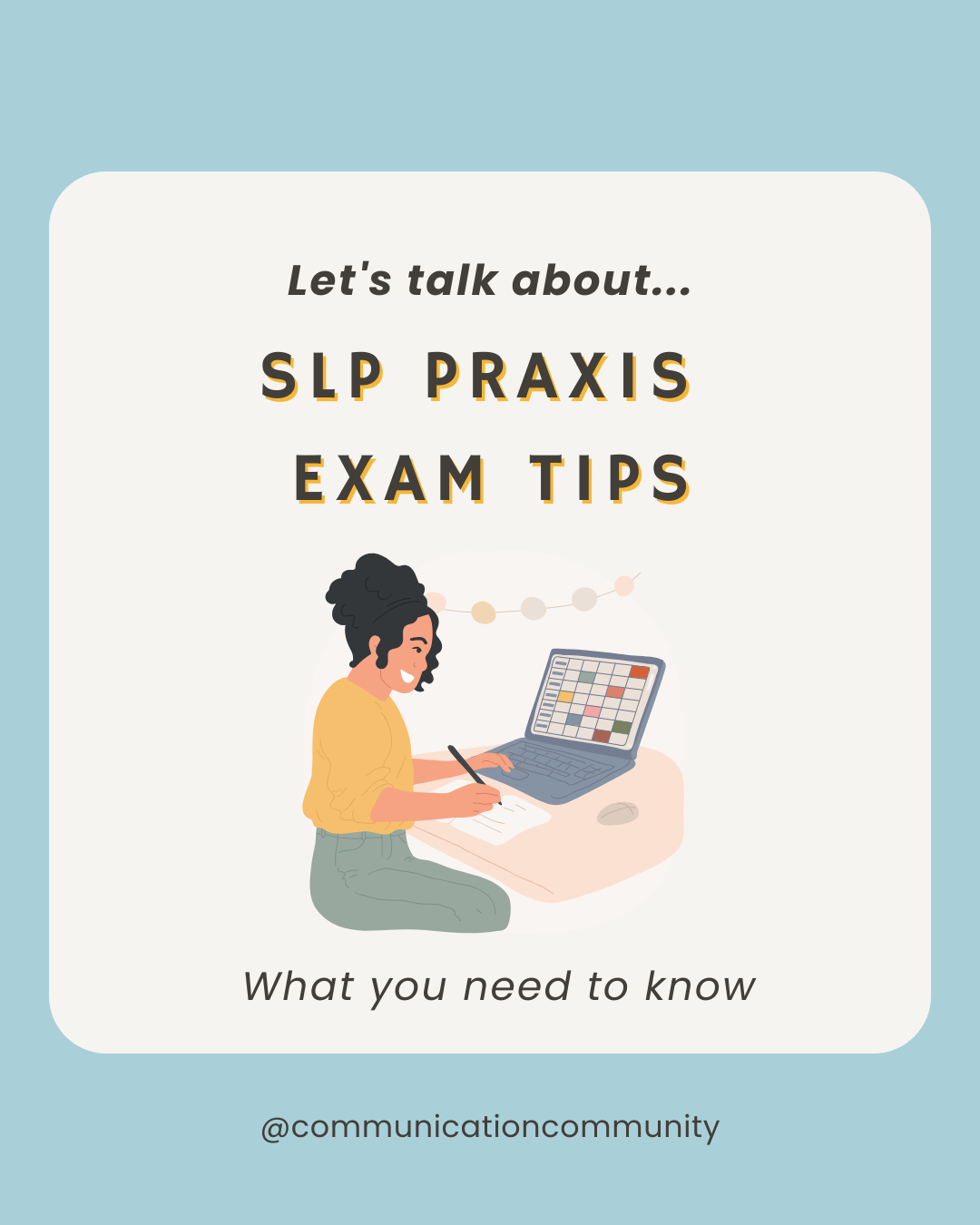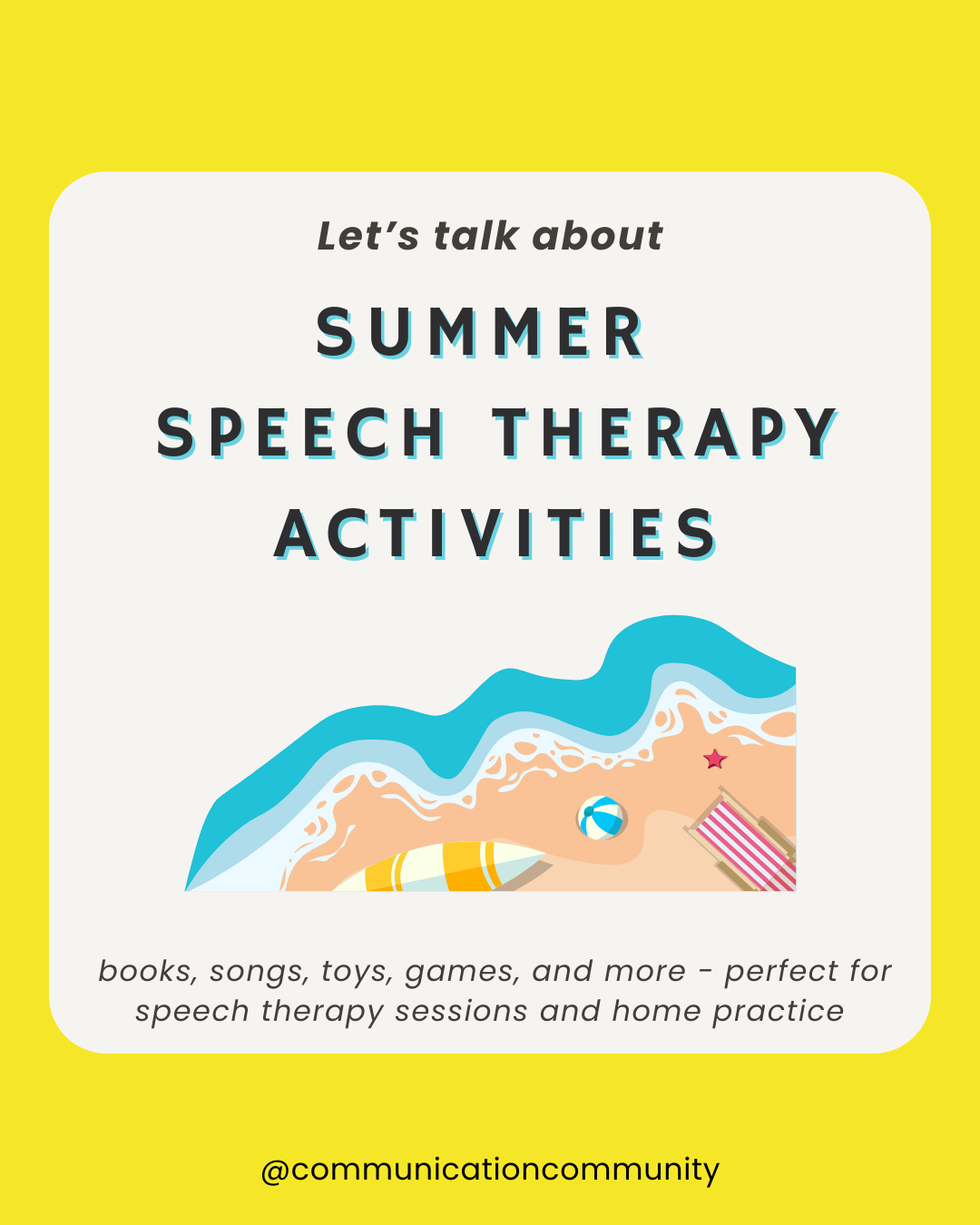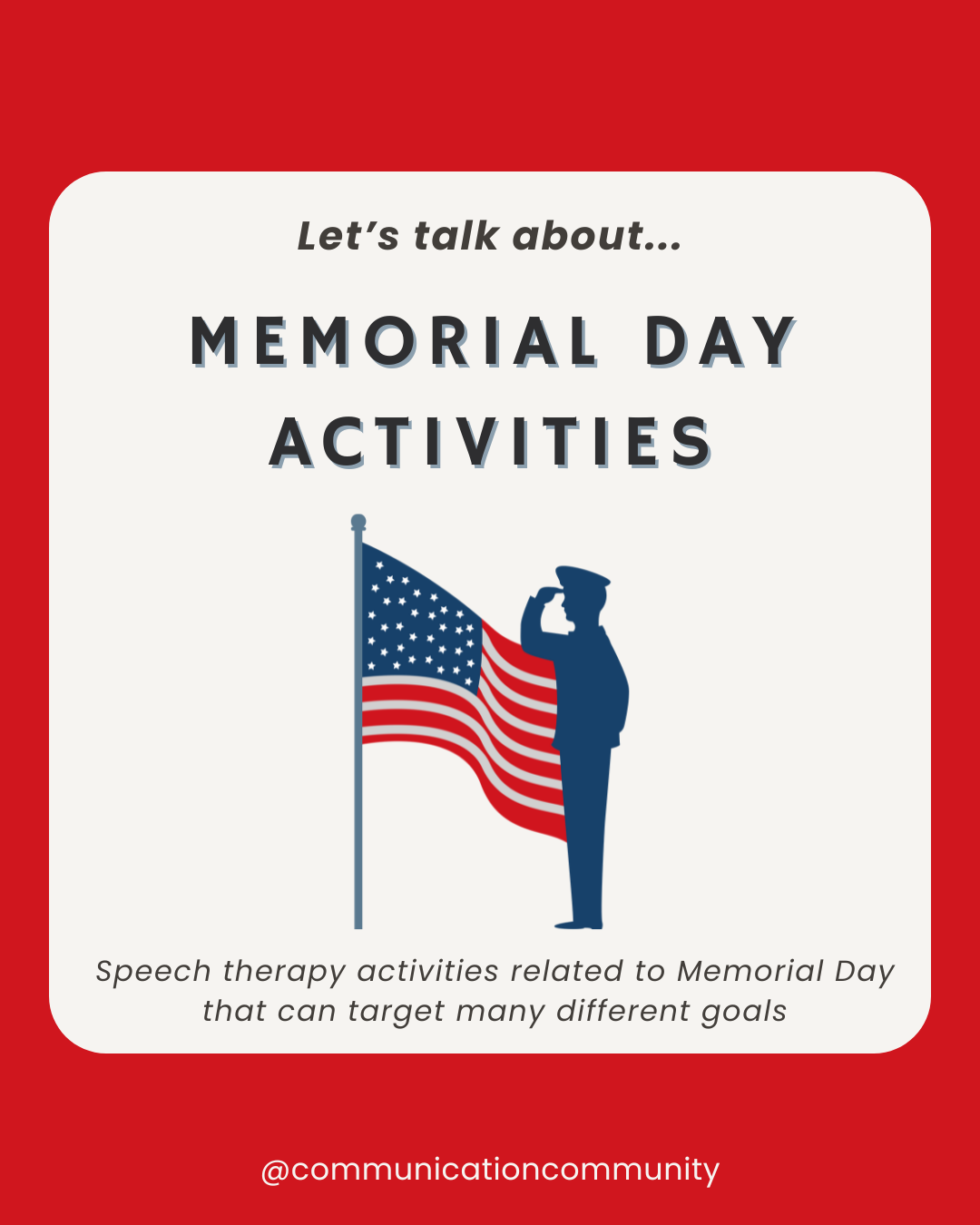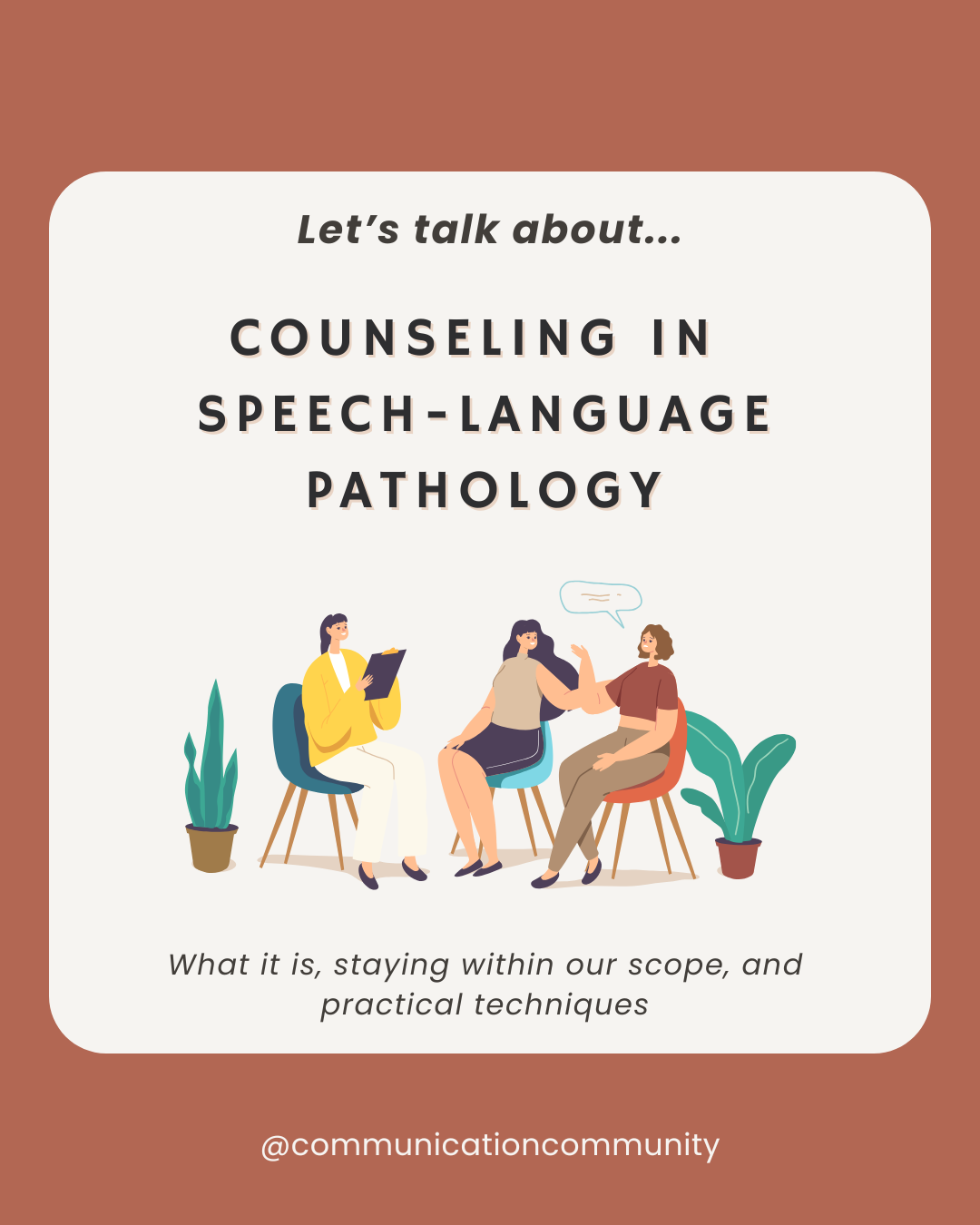Spring Books in Speech and Language Sessions
Almost every day of speech therapy sessions includes the use of books in my lesson plans. That being said, I am not just reading the words on the pages of each book; I’m doing so much more! Books are great for targeting a number of speech and language goals, including those for receptive language, expressive language, pragmatic language, articulation, stuttering, cluttering, voice, and more.
For language, they can be used to target vocabulary development, support comprehension, and discuss problem solving.
For articulation, high frequency words containing target speech sounds can lead to lots of functional practice.
For stuttering and cluttering, discussions related to books are great for working on increasing comfort related to speaking, decreasing avoidance, and using speaking strategies.
For voice, focusing on good vocal hygiene or using a functional vocal volume or pitch can be targeted while talking about books.
Reading the Same Book Across Multiple Sessions
There is so much that can be discussed and targeted when reading books that I sometimes don’t even finish a book in a single session. When this happens, I note the where page I left off, and in the next session, review the first part of the book, then pick up reading where we left off. There is a lot of good research that supports the effectiveness of learning new vocabulary when re-reading books as well!
5 Ways to Use Spring-Themed Books in Speech Therapy:
- Teach new concepts: Depending on where you or your clients live, spring may still bring the occasional snowstorm, or it may be the perfect time to go to the beach. Many spring books discuss animals coming out of hibernation, gardening, and springtime weather, like rain. This may be similar to your spring, but if not, it can be used to discuss how spring varies in different parts of the country and world.
- Learn new vocabulary: There are many spring-specific vocabulary words, including seedling, bulbs, and soil, which can be taught and targeted while reading spring books. In addition to reviewing how the words are used in the stories, you can provide further instruction by looking up definitions of the words and building sentences using them. Vocabulary can also be reinforced in extension activities (see below).
- Experience different senses: Using books, you can see a variety of spring elements, but there are also ways to hear, feel, smell, and taste aspects of spring as well (although it may not be possible to do all depending on your setting). You can hear birds chirping, feel dirt and seeds, smell fresh flowers and rain, and taste fresh produce. Having real-life sensory experiences is a great way to build on your book reading in sessions.
- Explore different themes: Beyond the classic rebirth theme of spring, other themes and concepts related to spring can be explored in seasonal stories. For example, different cultures have festivals for specific flowers (e.g., cherry blossoms in Japan) or have big celebrations for holidays (e.g., Semana Santa [Holy Week] in Spain). Some other sports and activities are traditionally done in the spring as well, including baseball, lacrosse, and tennis.
- Make planning easy: Keeping session preparation quick and simple is one of our main goals (we even talked about it in an Office Hour inside our Community). Reading books can help you save time and effort when lesson planning because they are great for targeting so many goals. You can use the same book across multiple sessions while changing up your prompts or areas of focus.
Spring-Themed Books in Speech Therapy: Session Outline
- Introduce the book and title
- Discuss themes in the book.
- Show pictures and/or videos related to the book (if applicable).
- Talk about vocabulary that will appear in the book.
- Highlight sound-specific words that will appear in the book (if you are targeting articulation).
- Start reading the book; emphasize vocabulary and articulation targets. Also, ask relevant comprehension questions including wh- questions, sequencing questions, story elements, spatial concepts, problem-solving, and more.
- Engage in an extension activity. These may include summarizing stories, comparing and contrasting story elements and vocabulary, doing an arts and crafts activity, or playing with related toys. See more ideas and links below.
Spring-Themed Books for Speech Therapy Sessions
Find over 20 spring-themed books organized by ways they can be used in speech therapy sessions. Many books fall into more than one category, which makes them great for targeting many goals!
*Tip: If I cannot get the physical copy, or if I am using a book during a teletherapy session, there are many read-aloud videos on YouTube! I try to find videos that do not zoom in on certain parts of the page so that I can pause them at any point and everyone can see all of the words and pictures on the page.
Spring-Themed Books for Vocabulary (Speech Therapy)
- Too Many Carrots by Katy Hudson
- Little Blue Truck’s Springtime by Alice Schertle
- Planting a Rainbow by Lois Ehlert
- Spring for Sophie by Yael Werber
- Abracadabra, It’s Spring! by Anne Sibley O’Brien
- Fletcher and the Springtime Blossoms by Julia Rawlinson
- Velma Gratch and the Way Cool Butterfly by Alan Madison
Spring-Themed Books for Sequencing (Speech Therapy)
- Too Many Carrots by Katy Hudson
- Planting a Rainbow by Lois Ehlert
- Spring for Sophie by Yael Werber
- Bear Wants More by Karma Wilson
- Abracadabra, It’s Spring! by Anne Sibley O’Brien
Spring-Themed Books for Rhyming (Speech Therapy)
- Little Blue Truck’s Springtime by Alice Schertle
- Bear Wants More by Karma Wilson
- Llama Llama Easter Egg by Anna Dewdney
- Passover is Coming! by Tracy Newman
- The Night Before Mother’s Day by Natasha Wing
- Worm Weather by Jean Taft
Spring-Themed Books for Predicting and Inferencing (Speech Therapy)
- Little Blue Truck’s Springtime by Alice Schertle
- Too Many Carrots by Katy Hudson
- Spring for Sophie by Yael Werber
- The Thing About Spring by Daniel Kirk
Spring-Themed Books for Activities (Gardening, Nature, etc.) (Speech Therapy)
- Planting a Rainbow by Lois Ehlert
- Llama Llama Easter Egg by Anna Dewdney
- Spring for Sophie by Yael Werber
- Mouse’s First Spring by Lauren Thompson
- Spring is Here by Will Hillenbrand
- Lola Plants a Garden by Anna McQuinn
- The Flower Thief by Alice Hemming
Spring-Themed Books for Holidays (Easter, Passover, Mother’s Day) (Speech Therapy)
- Peppa’s Easter Egg Hunt, Scholastic Book
- Pete the Cat: Big Easter Adventure by Kimberly & James Dean
- The Story of the Easter Bunny by Katherine Tegen
- Llama Llama Easter Egg by Anna Dewdney
- It’s Passover, Grover! by Jodie Shepherd
- Sammy Spider’s First Passover by Sylvia A. Rouss
- Passover is Coming! by Tracy Newman
- What NOT to Give Your Mom on Mother's Day by Martha Seif Simpson
- The Night Before Mother’s Day by Natasha Wing
Spring-Themed Books for Preschool & Early Elementary Students (Ages 3-6)
- Abracadabra, It’s Spring! by Anne Sibley O’Brien
- Little Blue Truck’s Springtime by Alice Schertle
- Bear Wants More by Karma Wilson
- Planting a Rainbow by Lois Ehlert
- The Story of the Easter Bunny by Katherine Tegen
- Spring is Here by Will Hillenbrand
- Llama Llama Easter Egg by Anna Dewdney
- Passover is Coming! by Tracy Newman
- Peppa’s Easter Egg Hunt, Scholastic Book
- The Thing About Spring by Daniel Kirk
- Mouse’s First Spring by Lauren Thompson
- Pete the Cat: Big Easter Adventure by Kimberly & James Dean
- It’s Passover, Grover! by Jodie Shepherd
- The Night Before Mother’s Day by Natasha Wing
- Worm Weather by Jean Taft
Spring-Themed Books for Kindergarten to Second Grade Students (Ages 5–8)
- Too Many Carrots by Katy Hudson
- Spring for Sophie by Yael Werber
- Fletcher and the Springtime Blossoms by Julia Rawlinson
- Sammy Spider’s First Passover by Sylvia A. Rouss
- What NOT to Give Your Mom on Mother's Day by Martha Seif Simpson
- Lola Plants a Garden by Anna McQuinn
- The Flower Thief by Alice Hemming
- Velma Gratch and the Way Cool Butterfly by Alan Madison
Additional Extension Activities for Spring Books
Explore spring senses with videos, crafts, and toys!
- The Science of Spring! | SciShow Kids Compilation Video
- Spring-Themed Stickers
- Butterfly Garden Kit
- Spring Bug Sticker Scene
- Grow Your Own Plant
- Garden Sensory Bin
Find More Spring Speech Therapy Favorites
Find other spring-themed speech therapy resources on our site!
- Spring Short Stories with WH Comprehension Questions
- 10 Easy Spring-Themed Activities for Speech Therapy
- Spring into Speech, Language, and Communication
This post contains some affiliate links and we receive a small commission if you use them, but all opinions are our own. We appreciate the support!
References
Horst, J. S., Parsons, K. L., & Bryan, N. M. (2011). Get the story straight: Contextual repetition promotes word learning from storybooks. Frontiers in Psychology, 2, 17. https://doi.org/10.3389/fpsyg.2011.00017
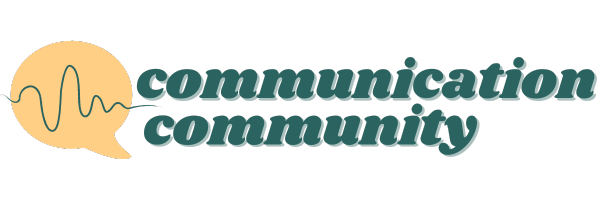
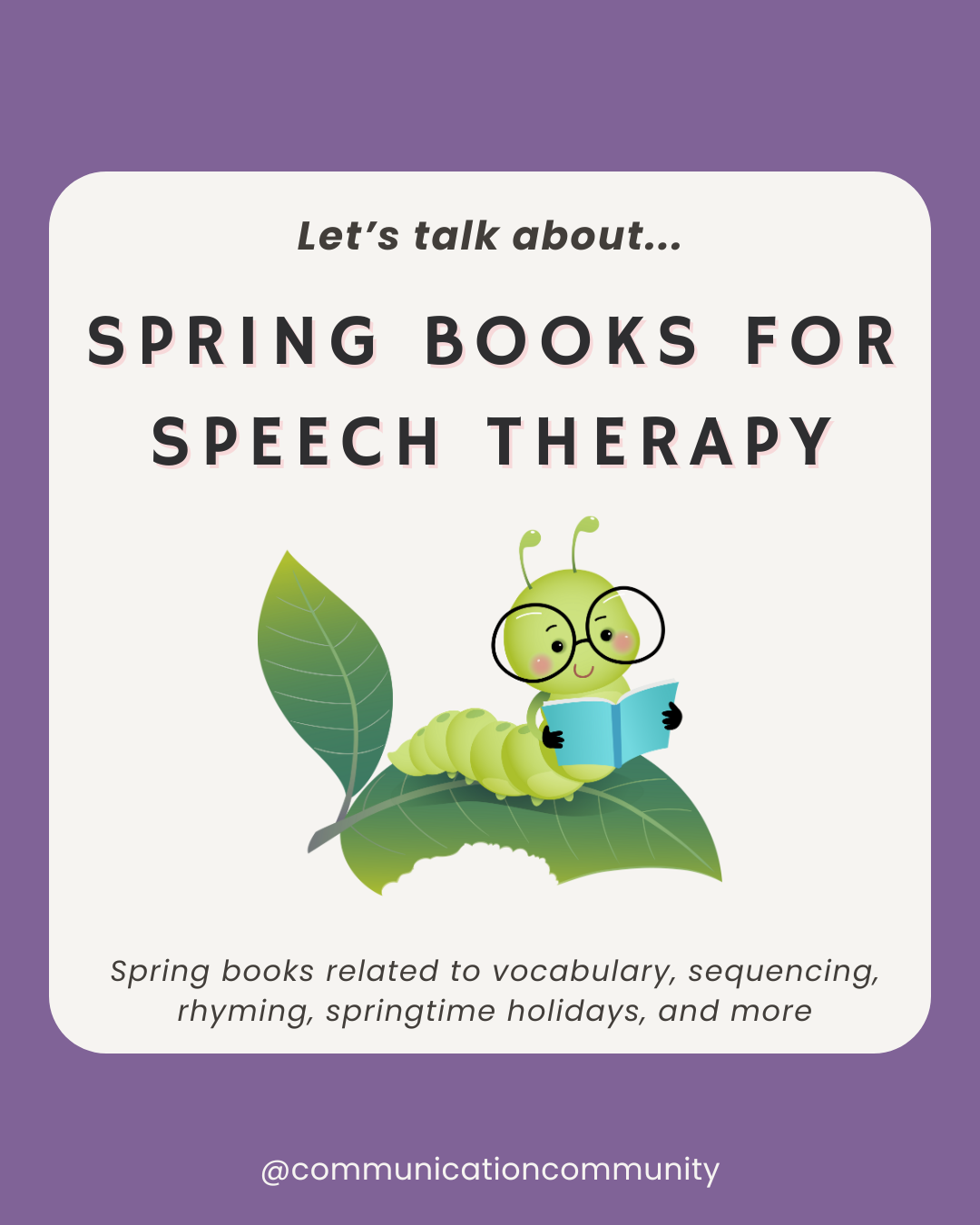
![How to Write Apraxia Goals [with goal bank]](https://www.communicationcommunity.com/content/images/2024/07/Apraxia-Goals--1-.png)
